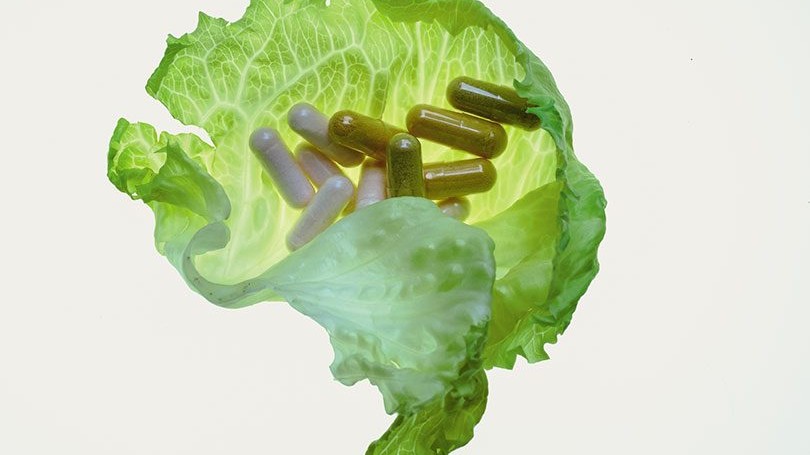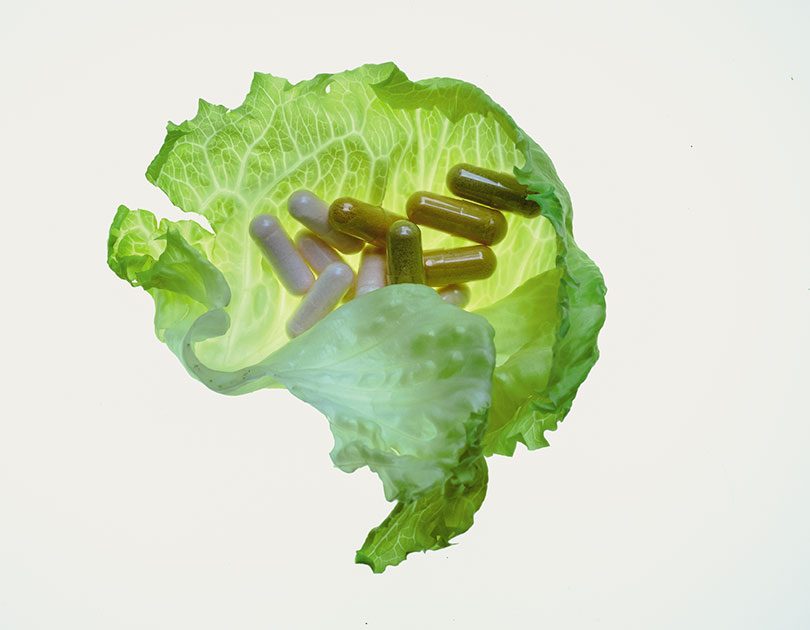How to check your vital vitamins and minerals, with our functional nutritionist Vinka Wong.
You eat a balanced diet (or at least you try to), you take note of how many servings of fruit, veges, protein and key nutrients you’re getting – but are you really getting all of the vitamins and minerals you need?
Eating a healthy, perfectly balanced diet is the best way for your body to get the required amount of all the vitamins, minerals and other nutrients. Yet despite your best efforts, you can start to experience symptoms of vitamin deficiency. They’re often quiet and barely noticeable, but over time a lack of certain vitamins can leave you feeling worse for wear.
Studies have found that as many as 50% of adults are deficient in key nutrients. The good news is there are some common clues to look out for which can help you turn things around. Here are some common signs of nutrient deficiencies that I see often with my clients.
TINGLING IN YOUR TOES OR FINGERS
A tingling or burning sensation in your toes or fingers may be a sign of any number of health issues, including a deficiency of vitamin B12. Your body uses vitamin B12 to make red blood cells and nerves. One of the earliest signs of a vitamin B12 deficiency is a pins-and- needles sensation in the extremities. To boost your B12 levels, add some animal protein into your diet each day.
BLEEDING GUMS
Typically, bleeding gums are a sign of gum disease. But if your dentist says your oral hygiene is good with no signs of gum disease, bleeding gums may be a sign you’re not getting enough vitamin C in your diet. Great food sources include citrus fruit, red sweet peppers, blackcurrants, watercress, broccoli and tomatoes. Watch out, though – the amount of vitamin C tends to deplete in vegetables that aren’t fresh, so choose frozen to help retain the freshness if you’re not eating them immediately.
DIFFICULTY SEEING AT NIGHT
If you’re having a hard time seeing after the sun goes down, then you may be deficient in vitamin A. Vitamin A is found in meat, dairy and eggs, as well as red, orange, yellow and green plant foods. To make sure you get enough vitamin A, eat a variety of these foods.
ACHING BONES
If you’re experiencing what your mum used to call ‘growing pains’ even though you’re no longer growing, you may be experiencing a vitamin D deficiency. Your body needs vitamin D to keep your bones healthy and strong. The most bioavailable form of vitamin D – that is to say the one that’s most efficiently absorbed– is likely to be from animal- sourced foods. Try oily fish such as tuna or salmon, as well as eggs.
DARK UNDER-EYE CIRCLES
Instantly ageing under-eye circles are one of the most common nutrient deficiency signs and are easy to look out for. While dark circles could be indicative of tiredness and dehydration, it could also be a micronutrient deficiency, such as iron, vitamins B12, E or K. It’s time to stop relying on the best foundation when it comes to dark circles and eat more red meat, nuts, dried fruit and whole grains instead.
SLOW-HEALING WOUNDS
If wounds are taking a long time to heal it may signal a zinc deficiency. You may also notice rough skin and reduced appetite and taste. Go for meat, shellfish, dairy and pumpkin seeds if you think you might be deficient.
FATIGUE
Being tired all the time can also be a sign of vitamin deficiency. When you have low levels of vitamin D, vitamin B12, iron, magnesium or potassium, your energy and cognition can suffer. If you feel tired all the time, boost your intake of these critical nutrients with foods such as eggs, animal protein, seeds and nuts, bananas and leafy greens.
THINNING HAIR
Normally, you shed 50–100 strands of hair a day. But if you’re losing hair in large clumps, it may be signs of a nutrient-poor diet. Your hair follicles are some of the most metabolically active structures in your body and require a slew of nutrients – iron, selenium, zinc, biotin and fatty acids to name a few – to maintain normal hair growth. Think about doing a blood test with your GP to check some of these key nutrients.
Keep a watch for these signs to look after yourself. To find out more about how nutrient deficiencies can impact your health, check out vinka.co.nz. ■




